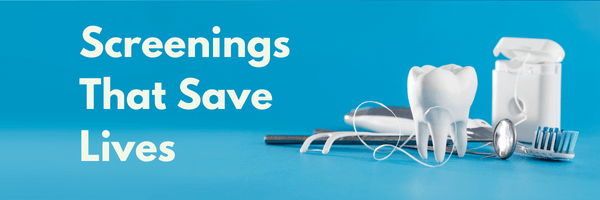
What We Can Do About Dental Professionals’ Early Retirement
Posted May 02, 2022
More dental professionals are considering retiring earlier than ever before. In an already challenging labor shortage, what can we do about it?
What the Survey Says…
In 2022, DentalPost published its Annual Dental Salary Report, which included the overall percentages of dental professionals who plan to retire within two years. (See At Risk For Dental Employee Turnover In 2022?)
It’s not surprising that twice the number of dental hygienists intend to retire within 2 years compared to their dental professional colleagues. Burnout among dental hygienists is rampant given the physical toll that 8 hours of repetitive scaling and planing work takes on the body.
Gen X vs. Baby Boomers: Retirement Outlook
Here’s what we learned about respondents’ retirement outlook comparing the Baby Boomer and Gen X generations.
Baby Boomers: Dental professionals in the 60+ age bracket represent 16% of survey respondents.
Among those 60+ years of age, more than half of all dental professionals plan to retire before age 65, the national standard retirement age. Note that almost 20% more dental hygienists plan to retire before that age.
Gen X: Dental professionals aged 45 to 59 years represent 44% of survey respondents.
Comparing GenX to Baby Boomers, across all positions there is a significant increase in their intentions to retire early. Most significantly, dental assistants and front office team members are 25% more likely to retire earlier than Baby Boomers. Additionally, associate dentists are 16.5% more likely while dental hygienists are 15% more likely.
So Why Does Gen X Intend To Retire Earlier?
Amongst the 45 to 59 years age group (GenX), many factors could contribute to this significant increase in intention to retire before age 65. First, Gen Xers have a different outlook than the previous generation. They feel less loyalty and are more attuned and influenced by their Gen Z offspring’s outlook. (See Gen Z in Dentistry: Get to Know the Dental Class of 2021 – DentalPost). They may have a history of more aggressive financial savings or higher expectations of early retirement than those closer to their anticipated retirement age.
Unlike Baby Boomers, whose generation considered it impolite to discuss financial matters publicly, Gen X has benefited from the new norm of shared public discourse around money and smart financial investing. Many GenXers don’t actually believe they will receive the Social Security benefits their parents will. Some suggest they are more inclined to be financially solvent and independent than Baby Boomers. Thus, they may be in a position to consider retiring earlier than their parents.
Why Some Dental Professionals Will Come Back Out Of Retirement Or Prolong It
In April, Forbes and NewsNation reported that non-dental specific industries are seeing some boomeranging Boomers––those who retired early during the pandemic and have decided to return to work. Whether they opted out or were let go during the pandemic, some are back to earn more, before relying on retirement reserves and Social Security. It’s not just because the nation needs knowledgeable, experienced professionals. Analysts cite financial security, avoidance of boredom, maintaining a purposeful life, and increased expendable income as reasons drawing the retirees back into the workplace. Lower investment returns and inflation have forced those saving for retirement to re-evaluate their financial status and to now rethink when they will retire.
What Can Dental Employers Do To Prolong Employee Retirement
The pandemic has forced most industries and businesses to change how they do business, especially when it comes to how employees conduct their work. And while remote work isn’t feasible for the clinical dental team, it is already becoming an expectation of the non-clinical dental team. Through our research, DentalPost has seen an increase in search interest for remote dental jobs among dental front office roles. Overall interest for these keywords has increased by 2,000% over the last 12 months. If remote work last year was the attractive differentiator, today, job seekers consider it part of the standard.
As expected, clinical team members are taking note and are looking for new management styles and more flexibility. This includes job-sharing options, innovative office hours/days, and schedules that may make their tenure more longstanding.
An Exceptional Employee Experience is the Answer
In 2022, with so many opportunities for job seekers, employers need to focus on proactively creating an exceptional employee experience to raise engagement and employee retention.
Making sure to stay in contact with each team member is critical. Additionally, stay on top of what is happening in the industry including current market rates given the booming inflation. Here are a few ways to do that and what to focus on.
- Conduct stay interviews to learn how to keep employees engaged and happy to continue working in your dental practice. Use this opportunity to express the high value you have for your employees.
- Increase focus on the top 3 things dental professionals reported in DentalPost’s 2022 satisfaction survey are key to their engagement:
- Competitive Income. Make sure you are following the dental salary trends through resources like DentalPost and the Bureau of Labor and Statistics
- Healthy Work Environment. Make sure you are intentionally creating a work environment where they can be mentally and emotionally fed. When they can grow both personally and professionally, it creates an environment they won’t want to leave.
- A Culture of Value. Make sure you are establishing an “appreciation culture” where words of affirmation are a form of currency. This type of culture fosters a mutual respect from coworkers and managers.
Retaining your best employees requires a new mindset and willingness to change how you’ve always done things. The seasoned employees who have been with you for a long period of time especially need this. Making these investments now, instead of when they announce their retirement is best for the entire dental team and practice.
We connect and educate more than 900,000 job seekers in the U.S. and Canada to build better places to work through teams that excel.




.png)




.png)